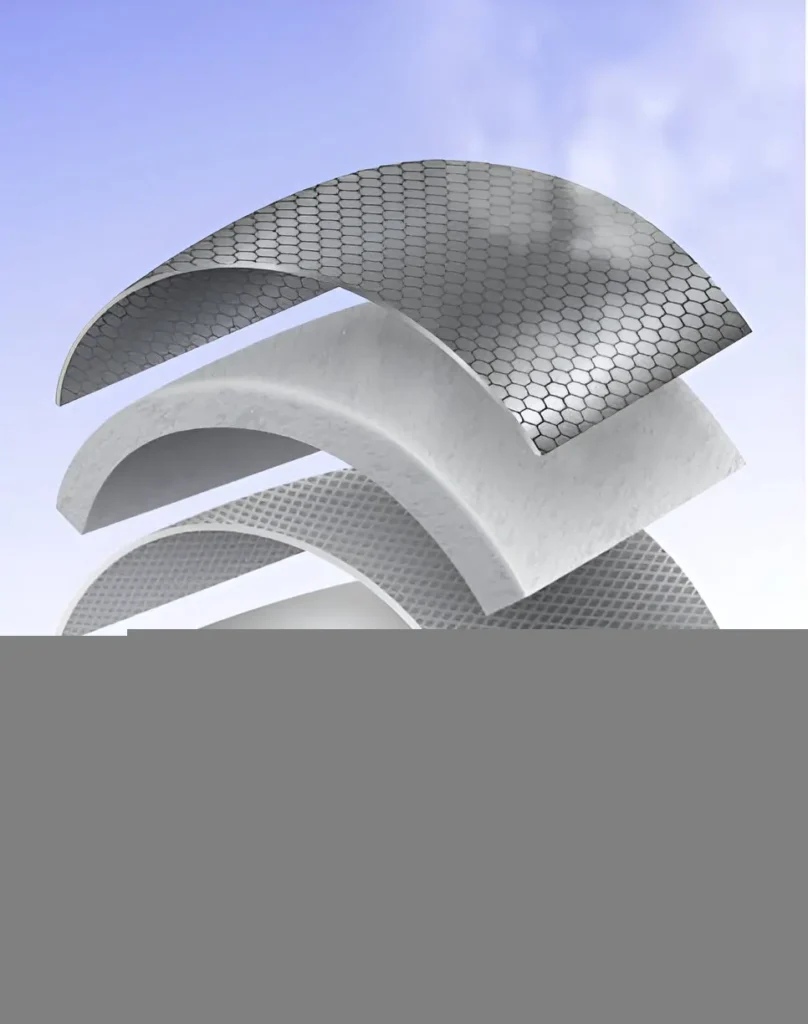Resin-based protective layers are a popular solution for shielding surfaces like wood, concrete, and metal from damage and wear. While epoxy resin has been a top choice, new alternatives are offering more flexibility and sustainability. This blog covers the benefits of resin coatings and emerging options, helping you select the best protection for your project.
What Are Resin-Based Protective Layers?
Resin-based protective layers are thin films or coatings applied to surfaces to protect them from wear, chemical exposure, moisture, or physical damage. They are typically made from polymer resins like epoxy, polyurethane, acrylic, or polyester. Each type has its properties, making it suitable for specific applications.
Common Uses of Resin-Based Protective Layers
Flooring: Frequently seen in garages, warehouses, and industrial facilities, resin layers shield floors from heavy impact and chemical spills.
Table and Countertops: Ideal for adding a glossy, scratch-resistant finish to wood or stone surfaces.
Metal Coating: Used in automotive and aerospace industries to protect metal components from corrosion.
Concrete Protection: Found in construction, resin layers protect poured concrete from cracking, water damage, and staining.
Epoxy vs. Alternatives
Epoxy resin has been the most widely used resin-based material for protection due to its durability, strong adhesion, and glossy finish. However, it is far from perfect. Epoxy can be brittle over time and is sensitive to UV exposure, often yellowing when subjected to sunlight.
This is where emerging resin alternatives like polyurethane, acrylic, and bio-resins come into play. Each offers unique attributes and benefits, expanding the range of options available for various applications.
Key Benefits of Resin-Based Protective Layers
Why should you consider resin-based protective layers? Below are some of their most significant advantages:
1. Durability and Resistance
Resin coatings are highly resistant to abrasions, cracks, and impacts. For example, polyurethane-based layers offer flexibility and can withstand heavy impact forces, making them a preferred choice for high-traffic flooring.
2. Protection Against Chemicals and UV
Industries dealing with corrosive substances often rely on resin layers to protect surfaces from chemical damage. Some resin alternatives, such as acrylic coatings, excel in offering long-lasting UV protection without yellowing over time.
3. Aesthetic Appeal
Resin coatings add a smooth, glossy finish that enhances the appearance of surfaces. They can be tinted or pigmented for a customized look, allowing users to combine protection with beauty.
4. Ease of Maintenance
Once applied, resin protective layers form non-porous surfaces that are easy to clean. This is especially valuable for spaces that require hygiene, such as kitchens, clinics, or garage floor finishing, such as those in Salt Lake City.
5. Sustainability
New-generation bio-resins are made from plant-based or recycled materials, offering an eco-friendly option for protective coatings. They reduce reliance on petroleum-based resins and minimize environmental impact.
Comparing Resin Options
With so many choices available, picking the right resin for your project can be overwhelming. Here’s a breakdown of key resin types:
Epoxy Resin
Benefits:
Strong adhesion to surfaces.
High durability and chemical resistance.
Creates a smooth, shiny finish.
Limitations:
Brittle and prone to cracking under stress.
Susceptible to UV-induced discoloration.
Longer curing time (requires patience).
Polyurethane Resin
Benefits:
More flexible than epoxy, making it ideal for surfaces prone to movement.
Excellent resistance to impact and abrasions.
Better UV stability compared to epoxy.
Limitations:
Can be more expensive than epoxy.
Requires skilled application techniques.
Acrylic Resin
Benefits:
Fast curing time (ideal for quick projects).
Exceptional UV resistance, making it perfect for outdoor applications.
Available in clear or colored tints.
Limitations:
Not as durable as epoxy or polyurethane.
May require reapplication more frequently.
Bio-Resins
Benefits:
Eco-friendly, made from renewable materials.
Perform similarly to synthetic resins, depending on the type.
Limitations:
Availability can vary depending on the region.
Often more expensive due to sustainable sourcing.
Polyester Resin
Benefits:
Low-cost and readily available.
Excellent for large-scale applications (e.g., boats, fiberglass).
Limitations:
Not as strong or durable as epoxy.
Strong odor during application.
How to Choose the Right Resin?
Selecting the best resin for your project depends on several factors, including the material you’re coating, desired durability, aesthetic preferences, and environmental considerations. Ask yourself these questions:
What surface are you protecting?
For concrete flooring, polyurethane may be most suitable.
For wood, epoxy or acrylic can highlight natural grains beautifully.
Is UV exposure a factor?
Go with UV-stable options like acrylic or polyurethane.
Do you prioritize sustainability?
Consider bio-resins for an eco-friendly choice.
What level of durability do you need?
For industrial-strength protection, epoxy or polyurethane is recommended.
What is your budget?
Balancing cost with performance can guide you toward the most economical choice.
Emerging Trends in Resin Technology
The market for resin-based protective layers isn’t standing still. Here are a few trends shaping the industry:
Innovation in Bio-Resins: The push for sustainable products has led to significant advancements in bio-resin capabilities, making them competitive alternatives to traditional resins.
Nanotechnology Applications: Nano-coatings are emerging as a way to enhance the performance of resin layers, offering higher resistance and durability with less material.
Color Customization: New resin formulas allow for more vibrant, lasting colors, giving consumers more aesthetic control over their projects.
Conclusion
Resin-based protective layers continue to evolve, offering a wide range of options tailored to different surfaces and applications. Whether you’re restoring hardwood floors, reinforcing industrial machinery, or adding flair to your furniture, there’s a resin solution that’s right for you.
Read more: Transforming Patient Care with Healthcare CRM Systems


